Imagine this: In just five years, connected car technologies have revolutionized the way we drive, making roads safer and commuting almost as effortless as breathing. But did you know, it’s not just about the cars themselves? It’s the invisible digital network that makes them almost superhuman.
With technological advancements pushing boundaries faster than ever, the conversation around connected vehicles has never been more critical. Understanding where we're headed next might just save you from being left behind in the dust of innovation.
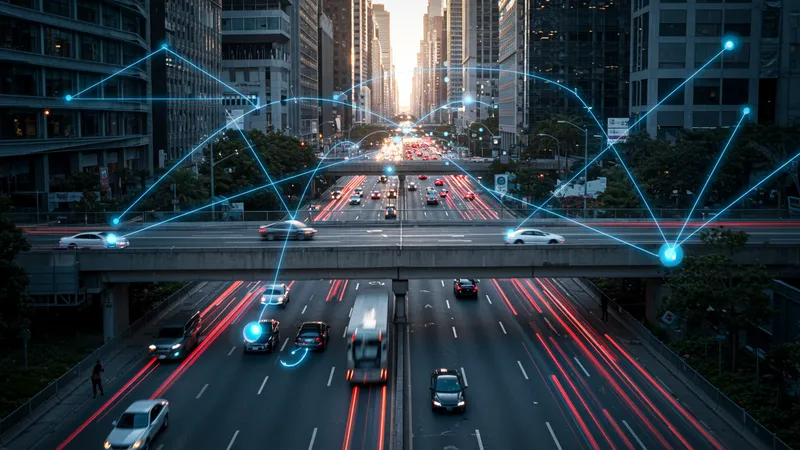
But here’s a twist: most people don’t realize that these technologies can significantly decrease accident rates. Analysts have found a correlation between connectivity and a 40% reduction in road mishaps. It sounds unreal, right? But that’s not even the wildest part...
While everyone’s eyes are fixed on autonomous driving, another development is quietly changing the game: vehicular communication with city infrastructure. This isn't just fancy tech; it’s a movement towards smarter cities where your car could save you money on tolls. But that's only the tip of the iceberg…
Experts predict a looming revolution in urban planning and individual convenience. The next phase of this journey is nothing short of incredible. What happens next shocked even the experts at top automotive firms...
Many drivers are completely unaware of the hidden capabilities that their vehicles already possess. As it turns out, numerous cars equipped with connected technology have built-in sensors that can detect everything from road hazards to pollution levels. While most people are aware of GPS, these advanced sensors work tirelessly to enhance your driving experience. But there's more waiting to be uncovered...
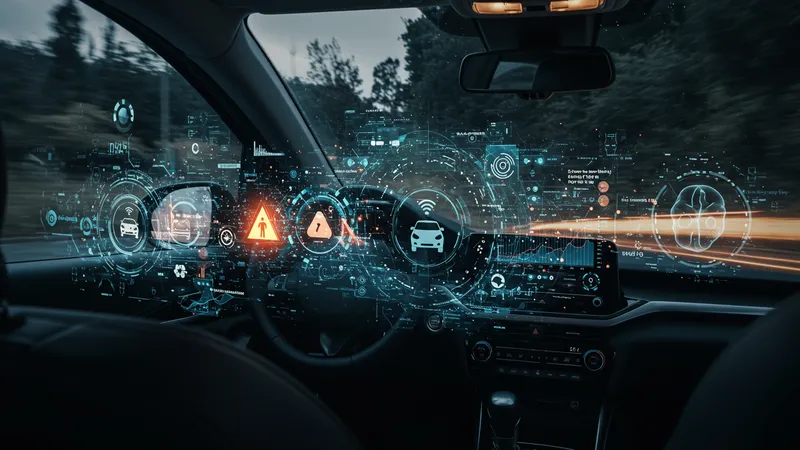
This integration of technology means that real-time data about potential road hazards can be shared with other cars, effectively creating a network of informed drivers. Think about being alerted to a major traffic jam before you hit it. This is how connectivity is syncing our lives, one drive at a time. What you’ll discover next might surprise even the tech-savviest among us...
Furthermore, these data-rich insights are also being used by city planners to redesign streets to accommodate future traffic flows, potentially reducing congestion by 30%. It's not just about cars; it's about reshaping cities to be more adaptive and responsive. This adjustment in urban terrains is just the beginning...
The even bigger picture? Personalized driving experiences. From seat preferences adjusting to weather conditions adapting your climate controls—your car is actively learning from you. This is only a prelude to a more customized world where vehicles cater to users like never before. But there’s one more twist...
Urban regions are undergoing an unprecedented transformation due to the advent of connected car technologies. Cities once critical of vehicle congestion are seeing these as the tool to alleviate it. What if I told you that cities are using connected data to reimagine infrastructure, reducing travel time by an average of 15%? This revelation turns traditional traffic management on its head.
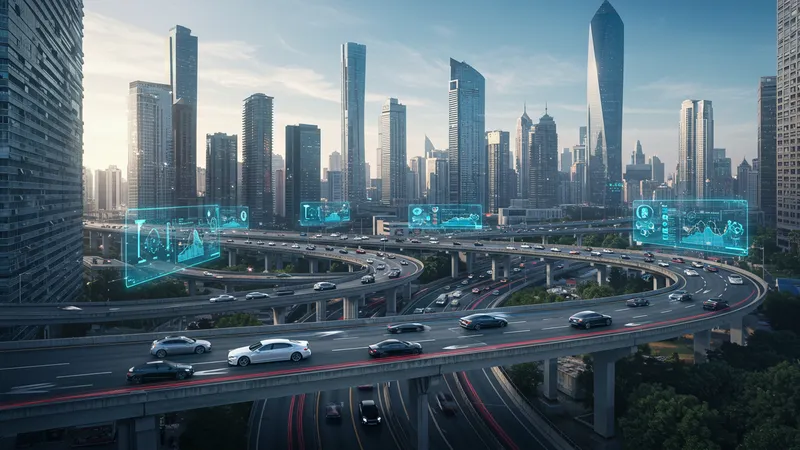
By analyzing driving patterns, municipalities are tailoring road networks that adapt in real-time based on traffic volume. This dynamic traffic management isn't just a far-off dream but a growing reality in tech-driven regions. Could your city be next in line for such a transformative shift? The impact could be closer than you think...
Moreover, connected technologies empower environmental sustainability. By enabling electric vehicles to communicate with the grid, these cars can optimize charging during off-peak hours, showcasing a new era of energy efficiency. It's not just about moving people; it's about revolutionizing public energy consumption.
And when it comes to public safety, connectivity ensures faster emergency response times by aiding first responders in navigating through traffic more effectively. This unforeseen benefit makes it a win-win for everyone on the road. What you learn next could change your outlook profoundly...
Vehicle-to-Everything (V2X) communication is a buzzword that's making significant waves in the automotive world, but do you know why it matters? In essence, it allows vehicles to interact with each other and their infrastructure, orchestrating a symphony of synchronized transit. This isn't future talk; it's happening now, secretly underpinning a safer journey for us all.
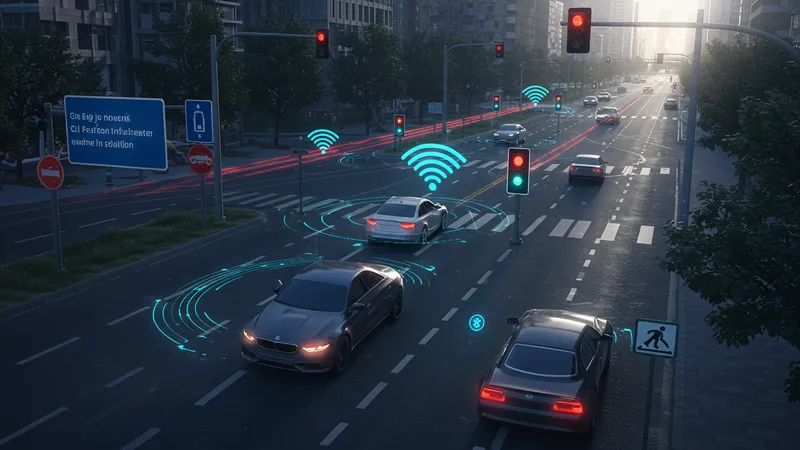
Technological prowess meets practicality when cars communicate with traffic lights and signs. This interaction can alert vehicles to road conditions or pedestrian crossings ahead. Imagine your commute being not just smart, but also smooth and secure. Could this change how you approach daily travel? It's closer to reality than you might believe...
Innovative demonstrations have revealed that V2X technology could prevent up to 80% of unimpaired vehicle collisions, painting a promising future for road safety and public confidence. It's a potential game-changer that significantly underplays the risks of human error, making roads safer for everyone.
But as cities integrate more connected infrastructures, the true potential of this tech becomes evident. Beyond the convenience, it's the promise of predictability in our commutes and predictability means less stress and an optimized day. What you uncover next will expand this perspective even further...
For all the benefits that connected car technologies offer, there is an undercurrent of vulnerability that accompanies these innovations. Yes, the very connectivity that makes our journeys seamless can also be a gateway for cyber threats. As more devices get connected, so too does the potential for lapses in security. But what does this really mean for everyday drivers?
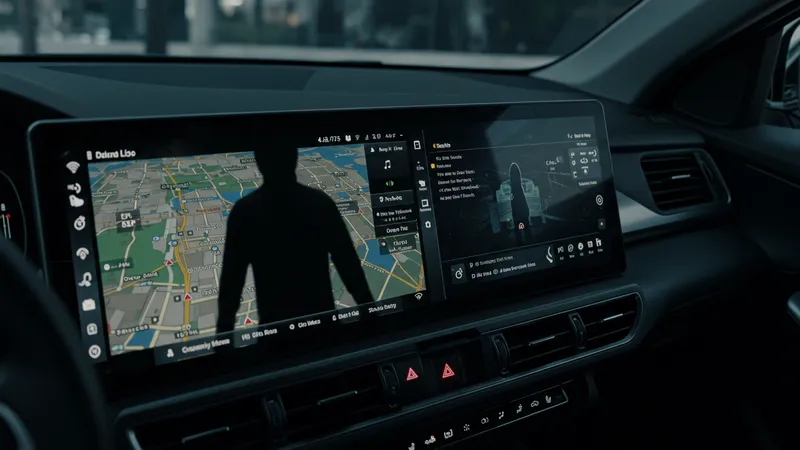
Consider the fact that hackers could potentially exploit these systems, accessing sensitive information or, worse yet, manipulating vehicle controls remotely. It's a scary thought that usually gets brushed aside in the pursuit of progress. But when stepping into the world of digital mobility, one must also consider the precautions necessary to protect it.
Beyond individual concerns, there's a broader societal risk. What if entire transportation networks could be disrupted with malicious intent? As governments and companies work tirelessly to stay ahead of these threats, it's clear that security is not just a matter of 'if' but 'when.' It's a challenge of monumental proportions that demands our attention.
Still, even with these potential risks, the innovative surge towards more connected and autonomous vehicles remains unstoppable. The next steps in safeguarding these systems will surprise you with their ingenuity. But there’s more at stake than what meets the eye...
In the fast-evolving world of connected car technologies, automakers are not just passengers along for the ride—they are significant drivers of this digital revolution. What might surprise you is how some companies are transitioning from traditional car manufacturers to tech-driven mobility providers. This shift is not just altering their business models but also redefining the overall automobile industry narrative.
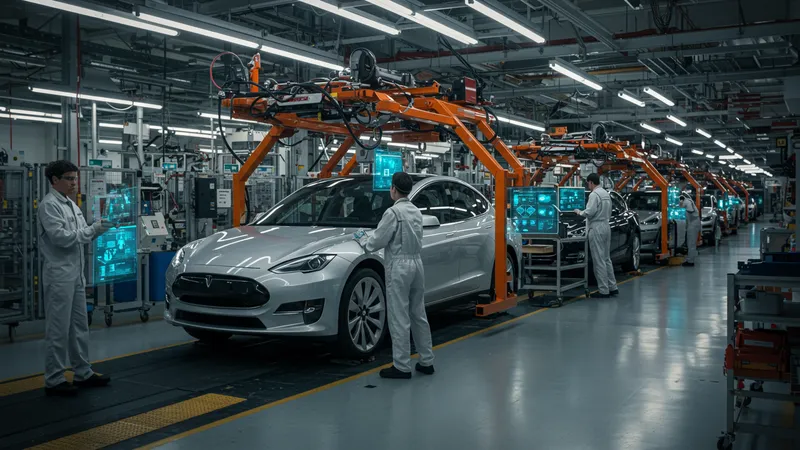
Leading automotive companies are investing heavily in research and development to create platforms that support these new technologies, ensuring that vehicles are not just state-of-the-art but also secure and efficient. The likes of Tesla, Ford, and General Motors are at the forefront of integrating cutting-edge tech into their models, ensuring that each vehicle off the line is future-ready.
Yet, one overlooked fact is the increasing collaboration with tech giants like Google and Apple. These alliances are fostering rapid advancements while bridging the gap between traditional automotive manufacturing and next-gen technological prowess. Are these partnerships the key to unlocking a sustainable, connected future on our roads?
Automakers are also tasked with setting industry standards. They're moving towards a future where cars also become platforms for third-party applications, changing not just how we drive but how we interact with our world. The implications of these shifts are vast, but we’re just scratching the surface of what's possible...
One cannot discuss connected cars without acknowledging the profound impact of artificial intelligence and machine learning in shaping these technologies. While AI is often a word thrown around to impress, its integration into automotive systems provides real-world enhancements that astonish many. From autonomous driving options to predictive maintenance alerts, AI is the silent worker making modern vehicles powerhouses of convenience.
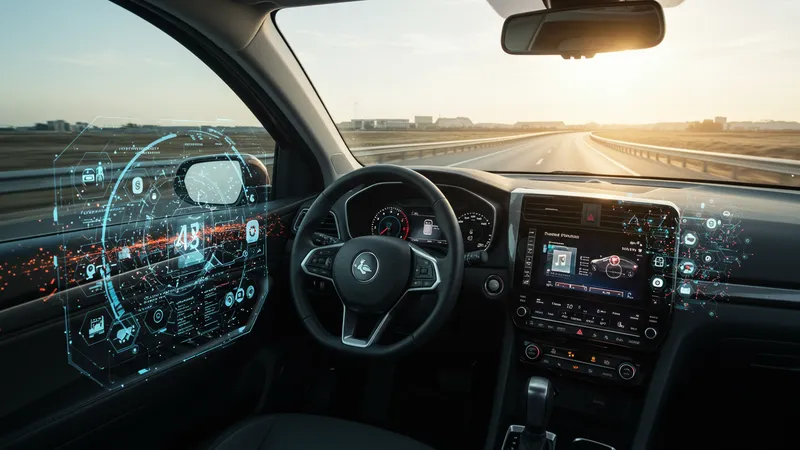
Machine learning algorithms offer insights that are beyond the capabilities of conventional programming, allowing systems to adapt in real-time to new data without human intervention. This adaptability translates into vehicles that can respond dynamically to varying road conditions or user preferences, greatly improving user experience and safety.
Yet, many don't realize that AI's impact reaches beyond mere automation. It's instrumental in fine-tuning fuel efficiency, reducing emissions, and prolonging vehicle lifespan—factors that make a notable environmental contribution. As the auto industry goes green, AI is leading the charge toward a sustainable future.
We must also consider the ethical implications as these technologies evolve. With AI making critical decisions, how do we navigate the moral landscape? The answers may redefine what it means to coexist with automated systems. This transformative dialogue has only just begun, and what's coming next could redefine the very fabric of mobility...
Data privacy is perhaps the most critical aspect of the burgeoning connected vehicle landscape, yet it often remains in the shadows of more glamorous discussions about technological advancement. With cars collecting staggering amounts of data—ranging from user habits to exact location details—the questions about how this information is used and protected take center stage.
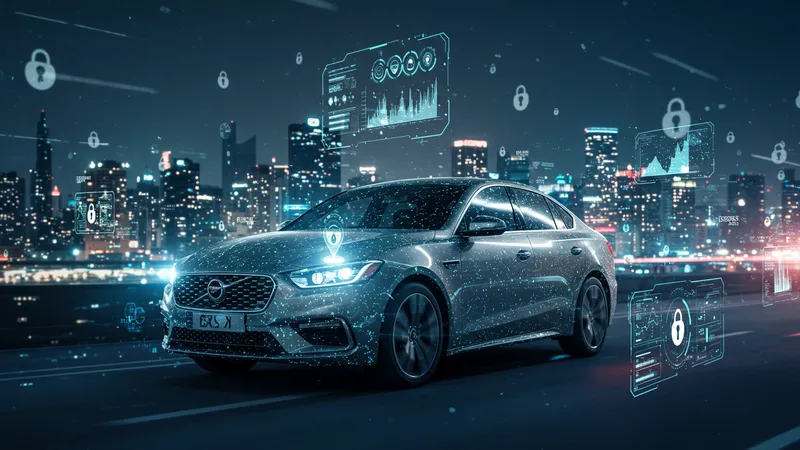
The reality is that as data becomes a currency within the auto industry, its misuse could have profound implications. Automotive companies are tasked with balancing innovation with stringent data protection measures to maintain user trust. Is the cost of connectivity worth the worry over compromised privacy?
In many ways, regulatory frameworks are striving to keep up with technology. Legislation like the GDPR in Europe tries to set a gold standard for data protection, but the uneven global landscape makes comprehensive security an intricate challenge. Until these frameworks reach a global consensus, data privacy will remain a contentious topic.
Yet, as challenges persist, they are also catalyzing ingenuity in devising new methods of securing user data without sacrificing convenience. This crossroads will shape the future of how we integrate technology into our lives, setting precedents for other sectors. The transformation in data privacy strategies promises revelations that are not only intriguing but essential for our connected future...
For those wondering what the future holds for connected car technologies, one answer stands out: 5G. Faster and more reliable than its predecessors, 5G offers a wealth of possibilities for enhancing vehicle connectivity. Imagine near-instantaneous communication between vehicles, enhanced navigation systems, and streaming of high-quality content—all while on the move.
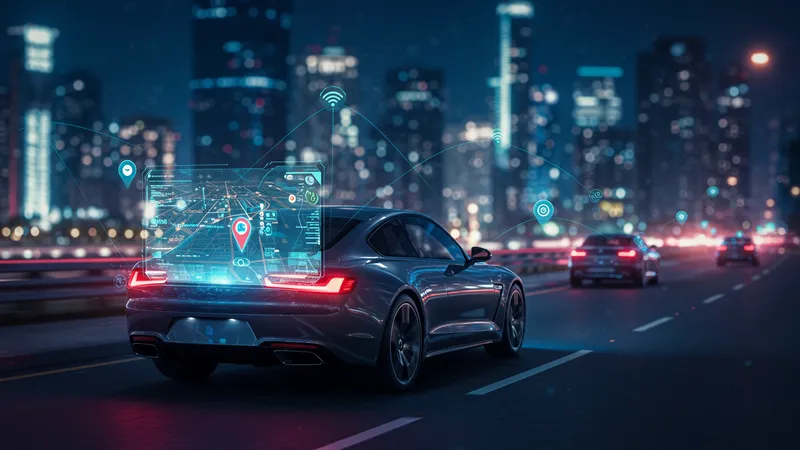
Unlike older networks, 5G reduces latency to virtually nonexistent levels. This means your car can receive and respond to data in real-time, opening up avenues for unprecedented advancements like remote driving and incredibly accurate hazard detection systems. The day when delayed navigation prompts are a thing of the past is drawing near.
5G's low latency isn't just about speed; it’s also about empowering automation. Cars equipped with this technology can coordinate more seamlessly with infrastructure, optimizing everything from fuel consumption to traffic flow. This ensures not just efficiency but also a significant reduction in operational costs. Could 5G be the linchpin for the autonomous revolution?
With 5G's potential barely tapped, its future looks promisingly transformative. Yet, this is just the spear-tip of what's possible as we leverage this technological leap. As 5G becomes commonplace, its integration with car connectivity could well redefine mobility as we know it. But the full extent of its capabilities is yet to be fully realized...
While the average driver may find sensors unfamiliar tech jargon, these unassuming components stand at the forefront of the connected car revolution. More than just enhancing safety, sensors are increasingly responsible for ensuring that your driving experience is as efficient and enjoyable as possible.
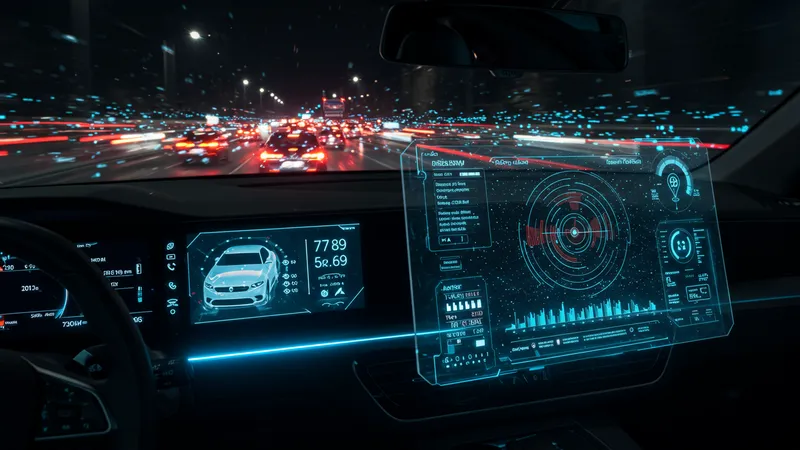
From low-resistance friction and tire pressure monitors to advanced radar and LIDAR systems, these sensors are the sentinels of modern automotive technology. They gather and transmit critical data, allowing cars to interpret the road in ways humans simply can't match. Did you know they can even detect driving patterns to suggest more fuel-efficient routes?
But perhaps their most compelling role involves environmental considerations. As cars become eco-friendlier, sensors are key players in lowering emissions and optimizing energy consumption, driving us closer to sustainable mobility. These subtle warriors continue to transform automotive experiences, proving that sometimes, the smallest technologies make the most significant impact.
With innovation showing no signs of slowing, the future looks bright for sensor technology. As these systems evolve, their potential to reshape our travel experiences grows, promising a leap into a world of smarter, greener cars. But what lies ahead in this transformative journey might surprise even the most seasoned techno-enthusiasts...
Insurance companies are often seen as conservative players in the technological game, but connected cars may very well shift this stance. By harnessing the power of data generated from these vehicles, insurers can offer personalized premiums, adjusting to individual driving behavior, and ultimately benefiting conscientious drivers financially.
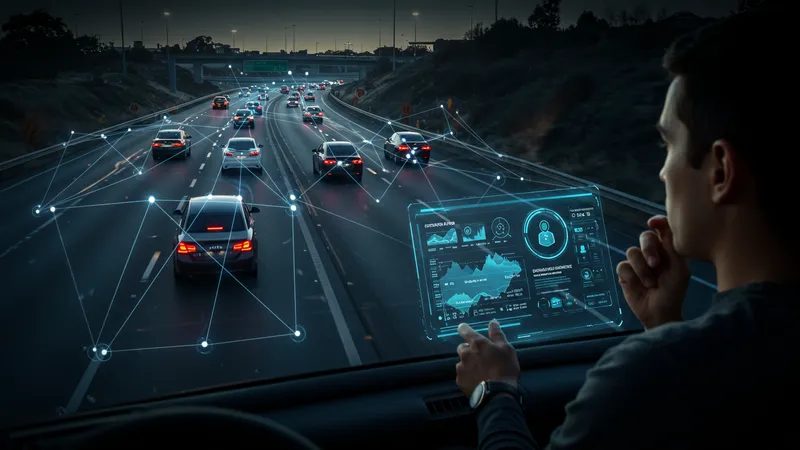
Imagine an ecosystem where the better—and safer—you drive, the lower your insurance premium. This innovative approach not only incentivizes responsible driving but also opens up a myriad of data-driven opportunities for insurers to refine their offerings. The tie-in with connectivity is set to make insurance more transparent and interactive than ever before.
Interestingly, this same data provides opportunities for cross-sector collaboration between insurers and automakers, optimizing how policies and cars are designed. The result could be tailored packages targeting specific demographics, thus enhancing market reach while fostering user loyalty. Could such partnerships reshape the future of road safety incentives?
With connected cars becoming integral to modern transportation, the role of insurance is also set to transform. While the potential gains are immense, the challenges presented by data usage and privacy put this transition under scrutiny. Yet, in addressing these, a new era of intelligent, responsive insurance emerges, promising benefits that extend far beyond financial savings...
Many car owners dread a cumbersome visit to the service center for software updates, but connected vehicle technologies are making this a concern of the past. Welcome to the era of real-time, over-the-air (OTA) software updates—an invisible hand that ensures cars stay at the peak of their operating abilities without the hassle.
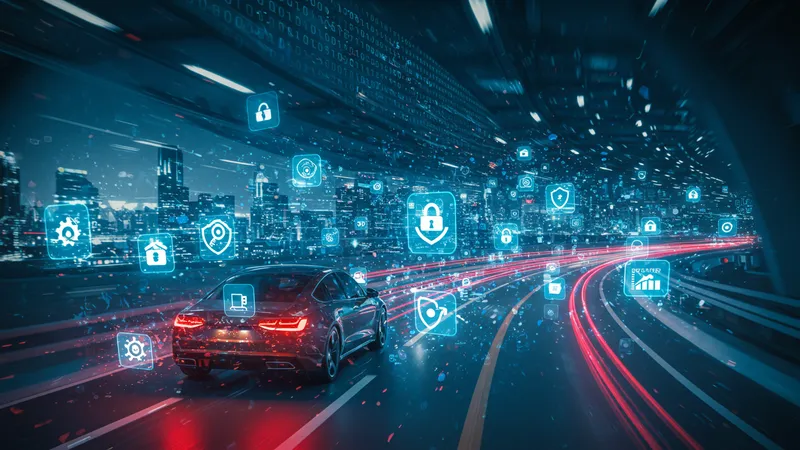
OTA updates can introduce new features, improve existing functionalities, and even enhance security protocols against the latest cyber threats. This digital upgrade path not only keeps your vehicle's systems current but also drastically reduces the downtime typically associated with traditional update methods.
Instantaneous and seamless, real-time updates provide the dual benefit of cost-saving and convenience for manufacturers and consumers alike. These updates create a living vehicle ecosystem that continually evolves to meet the latest standards and user demands. Could this be the key to owning cars that only improve with age?
As the potential of OTA updates continues to unfold, the implications for future vehicle design and functionality are profound. What's even more intriguing is how this capability might expand into new realms of user customization and personalization, redefining what it means to drive a 'smart' vehicle. And this evolution is just getting started...
Although typically associated with cryptocurrencies, blockchain technology is finding a new and powerful application in the world of connected cars. This decentralized, secure approach to transactions offers intriguing possibilities for enhancing the reliability and transparency of vehicle data, thus building greater trust among users, manufacturers, and insurers alike.
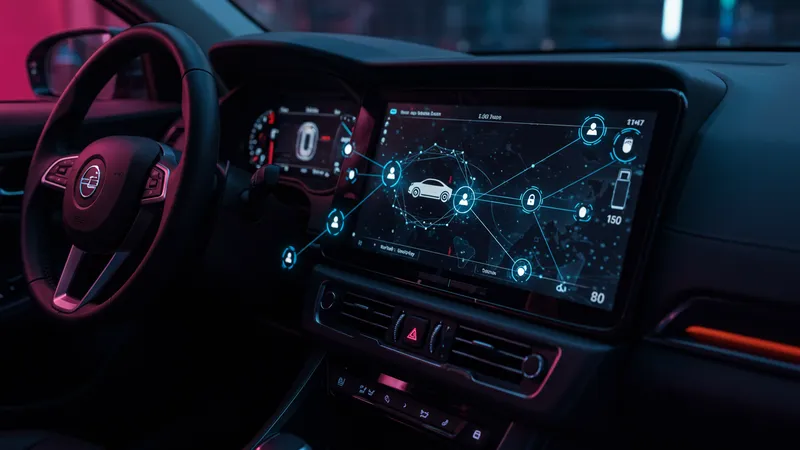
Imagine a future where all vehicle data is stored securely and accessible in a manner that respects individual privacy while providing the information needed for tech analytics, history checks, and more. Blockchain’s ability to safeguarding data integrity makes it invaluable in reducing fraud and ensuring the authenticity of vehicle records.
Moreover, blockchain opens up new avenues for transactional efficiency, enabling the secure sharing of data on a necessity basis across platforms and organizations. This innovation could streamline vehicular communications, making data more manageable and relationships between stakeholders more seamless.
The intersection of blockchain and connectivity signifies a monumental shift towards an intelligent automotive ecosystem where transparency and efficiency reign supreme. As we delve deeper into this integration, unexpected synergies will redefine our mobile landscape, fundamentally changing how we secure and utilize transportation technology data...
Beyond the transformation of individual driving experiences, connected car technologies hold the power to impact global economic trends significantly. By enhancing transportation efficiency, these technologies can reduce logistical costs, bolster supply chains, and increase productivity across numerous industries.
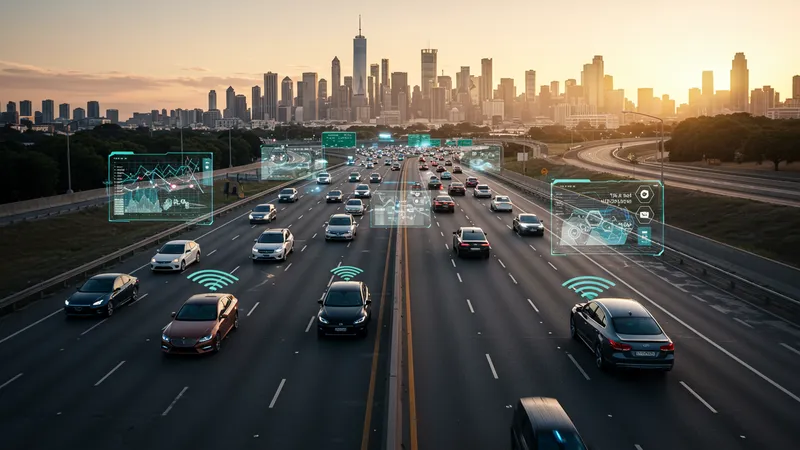
Foreseeing a future where vehicles drive themselves to deliver goods on-demand, businesses can expect reduced transportation costs and improved speed of service. Such synergies have the potential to stimulate economic growth, especially in emerging markets where infrastructure developments are rapidly expanding.
With supply chains becoming more reliable and less wasteful, the possible reduction in global pollution levels and carbon footprints is noteworthy. These vast savings hold economic and environmental significance, signaling a future where technological advancement rhythmically aligns with sustainability initiatives.
Given these profound global impacts, the race is now on between countries to establish themselves as leaders in connected car technologies. Their strategies and policies will determine the trajectory of their economic futures, making this an exciting battleground for technological and industrial leadership. And the stakes are only getting higher...
As we peel back the layers of connected car technologies, it becomes evident that this is not merely technological advancement but a complete overhaul of how we perceive mobility. From sensors to AI, blockchain innovations to global economic shifts, connected cars touch almost every facet of our lives and industries. This multi-dimensional transformation is not just a glimpse into the future but a current reality unfolding rapidly.
So the next time you step into a vehicle, remember that it's not just an ordinary car but a small marvel of engineering prowess driving towards an interconnected world. Share this insight with friends or bookmark this for a revisit—because engaged discussions today shape the landscapes of tomorrow. Let’s drive into the future, informed and ready!